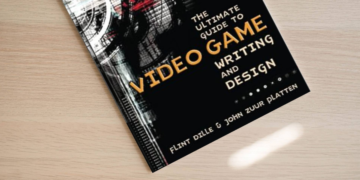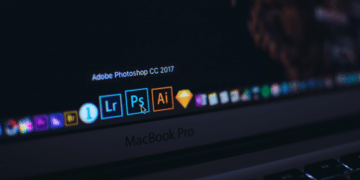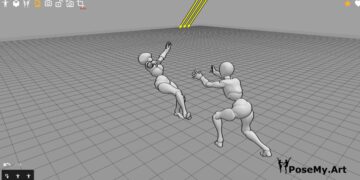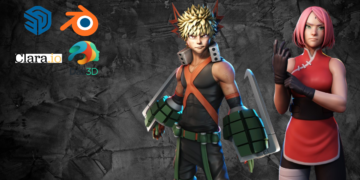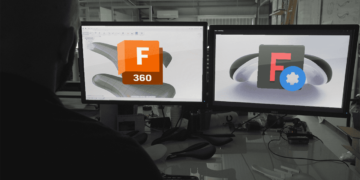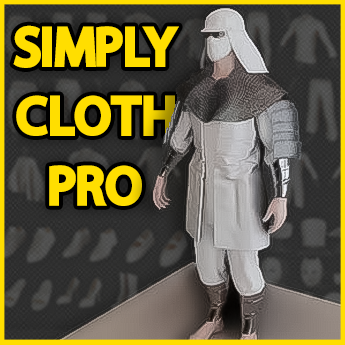The indie game development scene continues to be a vibrant and dynamic space where creativity knows no bounds. With the rise of accessible tools and platforms, more aspiring developers are seizing the opportunity to turn their gaming dreams into reality. However, in this fast-paced and competitive landscape, having the right set of tools can make all the difference between a hobby project and a successful indie game.
Welcome to our guide on essential tools for indie game developers in 2024. Whether you’re a seasoned developer or just starting out, this comprehensive overview will provide you with insights into the latest tools and technologies that can streamline your development process, enhance your game’s quality, and maximize your chances of success in the ever-evolving world of indie game development.
In this blog post, we’ll delve into various categories of tools, ranging from game engines and development frameworks to graphics and design software, audio tools, project management platforms, marketing resources, analytics solutions, monetization strategies, localization tools, and invaluable community resources. Each section will explore key tools and platforms, offering guidance on how to leverage them effectively to bring your game ideas to life and navigate the challenges of indie game development.
Whether you’re an indie developer working solo or part of a small team, we aim to equip you with the knowledge and resources needed to tackle the complexities of game development with confidence. So, let’s dive in and discover the essential tools that will empower you to create captivating and unforgettable gaming experiences in 2024 and beyond.
I. Game Engines:

Game engines serve as the foundation upon which indie developers build their virtual worlds and interactive experiences. In 2024, the landscape of game engines continues to evolve, offering a diverse array of options tailored to different skill levels, project scopes, and technical requirements. Let’s explore some of the leading game engines that indie developers are leveraging to bring their visions to life:
A. Unity:
- Unity remains a powerhouse in the indie game development community, renowned for its versatility, robust feature set, and user-friendly interface.
- With support for 2D and 3D game development, as well as AR and VR experiences, Unity caters to a wide range of projects across various platforms, including PC, console, mobile, and web.
- Its extensive asset store and vibrant community provide developers with a wealth of resources, plugins, and tutorials to accelerate their development process.
B. Unreal Engine:
- Unreal Engine continues to set the standard for cutting-edge graphics and immersive gameplay experiences, making it a popular choice for indie developers aiming for high-fidelity visuals and realistic simulations.
- Its powerful rendering capabilities, advanced physics engine, and visual scripting system, Blueprints, empower developers to create stunning games with minimal coding knowledge.
- Unreal Engine’s generous revenue-sharing model and robust community support make it an attractive option for indie developers seeking professional-grade tools without breaking the bank.
C. Godot Engine:
- Godot Engine has gained traction among indie developers for its open-source nature, intuitive design, and emphasis on flexibility and customization.
- Offering a node-based scene system, built-in scripting language (GDScript), and support for both 2D and 3D game development, Godot enables developers to iterate quickly and experiment with different ideas.
- Its lightweight footprint and minimal hardware requirements make it accessible to developers working on a variety of platforms, including low-end devices and emerging technologies.
D. Construct 3:
- Construct 3 caters to indie developers looking for a browser-based, no-coding approach to game development, making it an ideal choice for beginners or those with limited programming experience.
- Using a visual, event-driven system, developers can create games by simply dragging and dropping elements onto a canvas and defining their behaviors through intuitive logic blocks.
- Construct 3’s real-time collaboration features and seamless integration with online services like itch.io and Facebook Instant Games simplify the process of publishing and sharing games with a global audience.
As indie developers continue to push the boundaries of creativity and innovation, these game engines serve as indispensable tools that empower them to realize their visions and captivate players around the world. Whether you’re aiming to create a small indie gem or a blockbuster hit, choosing the right game engine can set you on the path to success in the competitive world of indie game development.
II. Game Development Frameworks:
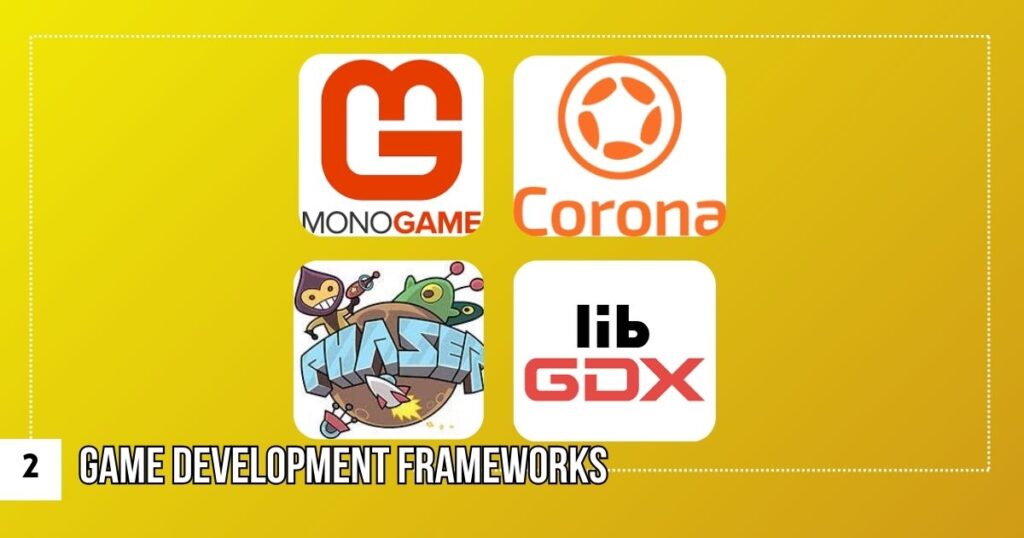
In addition to full-fledged game engines, indie developers often rely on game development frameworks to streamline the process of building games, prototypes, and interactive experiences. These frameworks offer a balance between flexibility, ease of use, and performance, catering to a wide range of development needs and skill levels. Let’s explore some of the leading game development frameworks that indie developers are utilizing in 2024:
A. Phaser:
- Phaser is a popular JavaScript framework for creating 2D games that run seamlessly on web browsers and mobile devices.
- Leveraging the power of HTML5 and WebGL, Phaser provides a robust set of features for game development, including sprite animations, physics simulations, input handling, and sound management.
- Its active community and extensive documentation make it an ideal choice for indie developers looking to create browser-based games, mobile apps, or interactive web experiences with ease.
B. LibGDX:
- LibGDX is a cross-platform game development framework built on top of Java, making it well-suited for developers familiar with the language and seeking to target multiple platforms.
- Offering support for 2D and 3D game development, as well as features like asset management, input handling, and scene management, LibGDX empowers developers to create high-performance games for desktop, mobile, and web platforms.
- Its lightweight architecture and efficient rendering engine make it a favorite among indie developers aiming for performance and scalability across different devices and screen sizes.
C. MonoGame:
- MonoGame is an open-source framework based on Microsoft’s XNA framework, designed to facilitate cross-platform game development using the C# programming language.
- Providing a familiar development environment for developers coming from a .NET background, MonoGame offers a powerful set of tools for creating 2D and 3D games that can be deployed to Windows, macOS, Linux, iOS, Android, and more.
- Its active community, extensive documentation, and compatibility with popular game development tools like Visual Studio make it a compelling choice for indie developers seeking a flexible and efficient framework for their projects.
D. Corona SDK:
- Corona SDK is a lightweight and user-friendly framework for creating 2D games and interactive apps using Lua scripting language.
- With its streamlined development workflow, real-time device testing, and built-in physics engine, Corona SDK enables indie developers to prototype, iterate, and deploy games rapidly across iOS, Android, and other platforms.
- Its extensive plugin ecosystem, cross-platform support, and comprehensive documentation make it an attractive option for developers looking to create mobile games and apps with minimal overhead and maximum efficiency.
By leveraging these game development frameworks, indie developers can expedite their development process, reduce development costs, and focus on bringing their creative visions to life without compromising on quality or performance. Whether you’re a solo developer or part of a small team, choosing the right framework can make all the difference in realizing your game development aspirations in 2024 and beyond.
III. Graphics and Design Tools:

Creating captivating visuals is essential for indie game developers to attract players and immerse them in their gaming worlds. In 2024, a plethora of graphics and design tools are available to empower developers to bring their artistic visions to life. Let’s explore some of the leading tools that indie developers are utilizing for graphics and design:
A. Adobe Photoshop:
- Adobe Photoshop remains the industry standard for graphic design and image editing, offering a comprehensive suite of tools and features for creating stunning visual assets for games.
- With its robust set of brushes, filters, and layer-based editing capabilities, Photoshop enables developers to design characters, environments, UI elements, and promotional materials with precision and creativity.
- Its integration with other Adobe Creative Cloud apps and seamless workflow make it a go-to choice for indie developers looking to produce professional-quality graphics for their games.
B. Blender:
- Blender is a powerful open-source 3D modeling and animation software that empowers indie developers to create complex 3D assets, animations, and visual effects for their games.
- Offering a wide range of modeling tools, sculpting features, rigging options, and animation capabilities, Blender provides developers with the flexibility and control needed to realize their artistic visions.
- Its active community, extensive documentation, and frequent updates make it an attractive choice for indie developers seeking a cost-effective and feature-rich solution for 3D graphics and animation.
C. Aseprite:
- Aseprite is a popular pixel art tool designed specifically for creating retro-style sprites and animations, making it an essential tool for indie developers working on 2D pixel art games.
- With its intuitive interface, pixel-perfect drawing tools, and animation timeline, Aseprite enables developers to design characters, tiles, and animations with ease and efficiency.
- Its support for various pixel art formats, customizable brushes, and export options make it a favorite among indie developers looking to evoke nostalgia and charm in their game visuals.
D. Pixelmator:
- Pixelmator is a versatile image editing software available for macOS and iOS, offering a range of tools and features tailored for digital painting, photo editing, and graphic design.
- With its intuitive interface, non-destructive editing capabilities, and powerful tools like layers, effects, and retouching brushes, Pixelmator provides indie developers with a streamlined workflow for creating polished game graphics.
- Its integration with macOS and iCloud, as well as its affordability compared to industry-standard software, make it an appealing choice for indie developers seeking a Mac-centric graphics solution.
By harnessing the power of these graphics and design tools, indie developers can elevate the visual quality of their games, establish a unique artistic style, and captivate players with immersive gaming experiences. Whether you’re creating 2D pixel art masterpieces or crafting intricate 3D worlds, choosing the right graphics and design tools can set your game apart and leave a lasting impression on players in 2024 and beyond.
Also check our take on Crowdfunding for Game Developers: Launch Your Indie Dream in 2024
IV. Audio Tools:

Sound and music play a crucial role in enhancing the immersive experience of indie games, setting the mood, and engaging players on a deeper level. In 2024, indie developers have access to a variety of audio tools to create captivating audio landscapes for their games. Let’s explore some of the leading audio tools that indie developers are leveraging:
A. FL Studio:
- FL Studio, formerly known as FruityLoops, is a versatile digital audio workstation (DAW) that offers a comprehensive set of tools and features for music production, composition, and sound design.
- With its intuitive interface, powerful MIDI sequencing capabilities, and extensive library of virtual instruments and effects, FL Studio empowers indie developers to create original soundtracks, sound effects, and ambient audio for their games.
- Its modular workflow, real-time recording and editing features, and support for third-party plugins make it a go-to choice for indie developers seeking professional-grade audio production tools.
B. Ableton Live:
- Ableton Live is a popular DAW favored by indie developers for its innovative approach to music creation, live performance, and sound manipulation.
- Offering a unique session view for non-linear composition, intuitive MIDI and audio sequencing, and a vast collection of built-in instruments and effects, Ableton Live provides indie developers with a flexible and creative platform for crafting dynamic audio experiences.
- Its integration with hardware controllers, real-time warping and time-stretching capabilities, and extensive library of user-generated content make it a versatile tool for indie developers exploring experimental sound design and electronic music genres.
C. Audacity:
- Audacity is a free, open-source audio editor and recorder that offers basic editing and recording features for indie developers looking to create simple sound effects, voiceovers, or audio snippets for their games.
- With its user-friendly interface, multi-track editing capabilities, and support for various audio formats, Audacity provides indie developers with a straightforward solution for basic audio editing tasks without the complexity or cost of professional-grade software.
- Its active community, comprehensive documentation, and cross-platform compatibility make it an accessible option for indie developers seeking a lightweight and versatile audio tool for their projects.
D. FMOD Studio:
- FMOD Studio is an advanced audio middleware solution designed specifically for interactive and adaptive audio in games.
- Offering a visual, event-driven interface, flexible audio routing, and real-time parameter modulation, FMOD Studio enables indie developers to create dynamic soundscapes, implement immersive audio effects, and orchestrate complex interactive music systems for their games.
- Its integration with popular game engines like Unity and Unreal Engine, as well as its robust feature set tailored for game audio, make it a powerful tool for indie developers looking to elevate the audio experience of their games.
By leveraging these audio tools, indie developers can enrich their games with immersive soundscapes, memorable soundtracks, and engaging audio effects that enhance the overall gaming experience and captivate players. Whether you’re crafting an epic adventure, a thrilling action game, or a relaxing puzzle experience, choosing the right audio tools can help you realize your vision and create unforgettable gaming experiences in 2024 and beyond.
V. Monetization Tools:

Monetizing indie games is essential for sustaining development efforts, generating revenue, and ensuring the viability of future projects. In 2024, indie developers have access to a variety of monetization tools and strategies to effectively monetize their games while providing value to players. Let’s explore some of the leading monetization tools that indie developers are utilizing:
A. Unity Ads:
- Unity Ads is an advertising platform integrated directly into the Unity game engine, allowing developers to monetize their games through rewarded video ads, interstitials, and banner ads.
- With its seamless integration and global reach, Unity Ads enables indie developers to generate revenue from their games while providing players with non-intrusive advertising experiences that can enhance gameplay or reward engagement.
- Its robust targeting options, real-time reporting, and flexible monetization strategies make it a popular choice for indie developers seeking to monetize their games through in-game advertising.
B. AdMob:
- AdMob is a mobile advertising platform developed by Google, offering a range of ad formats, including banner ads, interstitials, rewarded video ads, and native ads, to help developers monetize their mobile games and apps.
- With its advanced targeting capabilities, intelligent ad serving algorithms, and seamless integration with Google’s ad network, AdMob provides indie developers with a reliable and scalable solution for monetizing their games while maximizing revenue potential.
- Its extensive documentation, developer tools, and analytics dashboard make it easy for indie developers to track ad performance, optimize monetization strategies, and maximize earnings from their games.
C. In-App Purchase Platforms:
- In-app purchases (IAPs) allow indie developers to offer virtual goods, premium content, and additional features within their games, providing players with opportunities to enhance their gaming experience and support developers financially.
- Platforms like Apple’s App Store, Google Play, and Steam provide indie developers with built-in mechanisms for implementing IAPs, managing digital storefronts, and processing transactions securely.
- By strategically designing in-game economies, creating compelling virtual goods, and offering value-added content, indie developers can leverage in-app purchases to generate sustainable revenue streams and foster long-term player engagement.
D. Patreon:
- Patreon is a membership platform that enables indie developers to monetize their games through recurring subscriptions, crowdfunding campaigns, and exclusive content offerings.
- By building a community of dedicated supporters, indie developers can offer patrons access to behind-the-scenes development updates, exclusive game content, early access to new releases, and other perks in exchange for monthly financial support.
- Patreon’s flexible pricing options, creator-friendly policies, and built-in tools for managing memberships and rewards make it an attractive platform for indie developers seeking alternative monetization models that prioritize community engagement and direct fan support.
By leveraging these monetization tools and strategies, indie developers can generate revenue from their games, support ongoing development efforts, and build sustainable businesses that enable them to continue creating innovative and engaging gaming experiences for players around the world. Whether you’re exploring advertising-based monetization, in-app purchases, or community-driven funding models, choosing the right monetization tools can help you achieve financial success and creative freedom in the competitive world of indie game development.
VI. Resources:
A. Online Tutorials and Documentation:
- Unity Learn
- Unreal Engine Documentation
- Godot Documentation
- Construct 3 Tutorials
B. Game Development Communities:
- Reddit r/gamedev
- Stack Overflow Game Development
- Unity Forums
- Unreal Engine Forums
C. Game Assets Marketplaces:
- Unity Asset Store
- Unreal Marketplace
- itch.io
- GameDev Market
D. Game Jams and Hackathons:
- Ludum Dare
- Global Game Jam
- itch.io Game Jams
- GitHub Game Off
E. Indie Game Publisher Platforms:
- itch.io
- Steamworks
- Nintendo Developer Portal
- PlayStation Developer
These links should provide easy access to the resources mentioned, allowing indie game developers to explore, learn, collaborate, and publish their games effectively.





